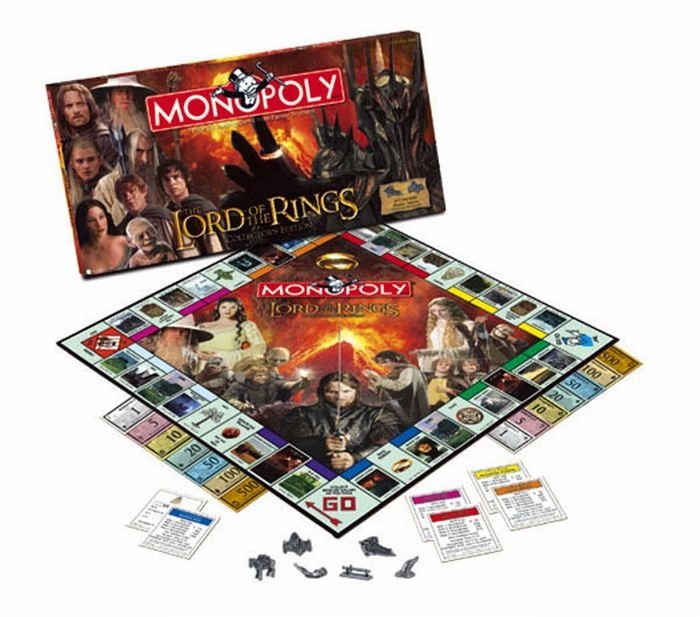|
|
Monopoly
|
Short Line is believed to refer to the Shore Fast Line, a streetcar line that served Atlantic City. The B&O Railroad did not serve Atlantic City. A booklet included with the reprinted 1935 edition states that the four railroads that served Atlantic City in the mid 1930s were the Jersey Central, the Seashore Lines, the Reading Railroad, and the Pennsylvania Railroad. The actual "Electric Company" and "Water Works" serving the city are respectively Atlantic City Electric Company (a subsidiary of Pepco Holdings) and the Atlantic City Municipal Utilities Authority.
The other versions of the game have different property names, and the prices may be denominated in another currency, but the game mechanics are almost identical.
Players take turns in order, with the initial player determined by chance before the game. A typical turn begins with the rolling of the dice and advancing clockwise around the board the corresponding number of squares. Landing on Chance or Community Chest, a player draws the top card from the respective pile. If the player lands on an unowned property, whether street, railroad, or utility, he can buy the property for its listed purchase price. If he declines this purchase, the property is auctioned off by the bank to the highest bidder. If the property landed on is already owned and unmortgaged, he must pay the owner a given rent, the price dependent on whether the property is part of a set or its level of development. If a player rolls doubles, he rolls again after completing his turn. If any dice are rolled outside the play area or are leaning against an object the player must re-roll both dice. Three sets of doubles in a row, however, land the player in jail. During a turn, players may also choose to develop or mortgage properties. Development involves the construction, for given amounts of money paid to the bank, of houses or hotels. To build a house or a hotel, the player must own all properties in a color group. Development must be uniform across a monopoly, such that a second house cannot be built on one property in a monopoly until the others have one house. No merges between players are allowed. All developments on a monopoly must be sold before any property of that color can be mortgaged or traded. The player receives money from the bank for each mortgaged property, which must be repaid with interest to unmortgage. Houses are returned to the bank for half their purchase price.He is not allowed to give any of his property to another player.
|
|









